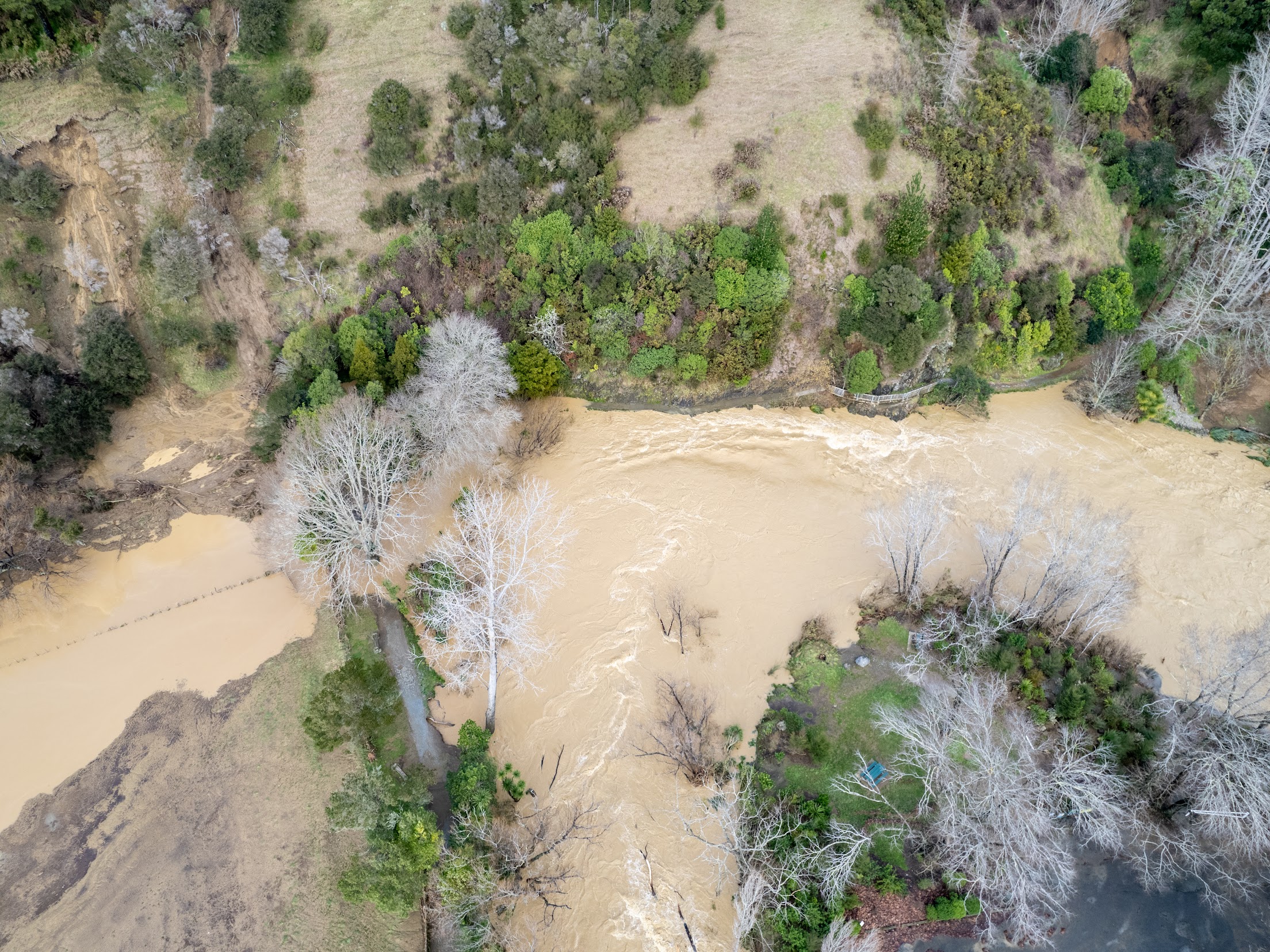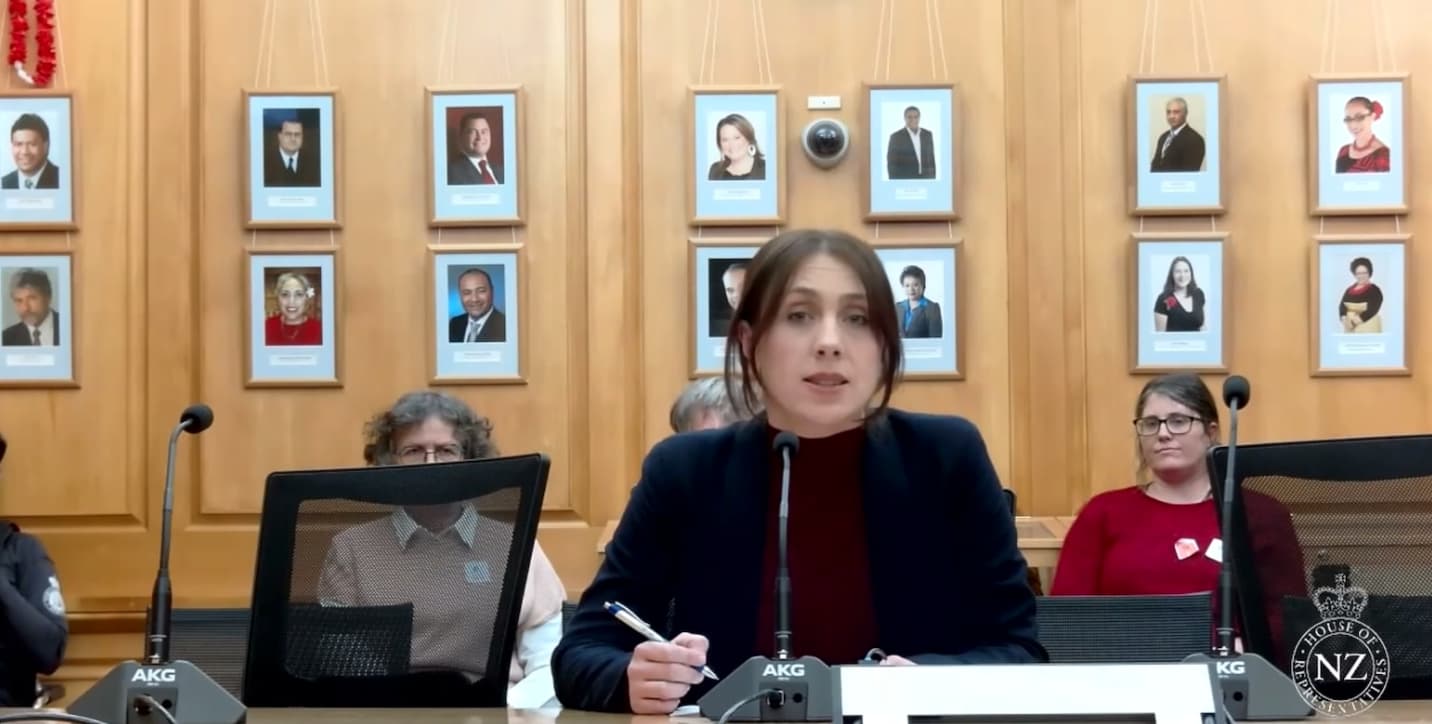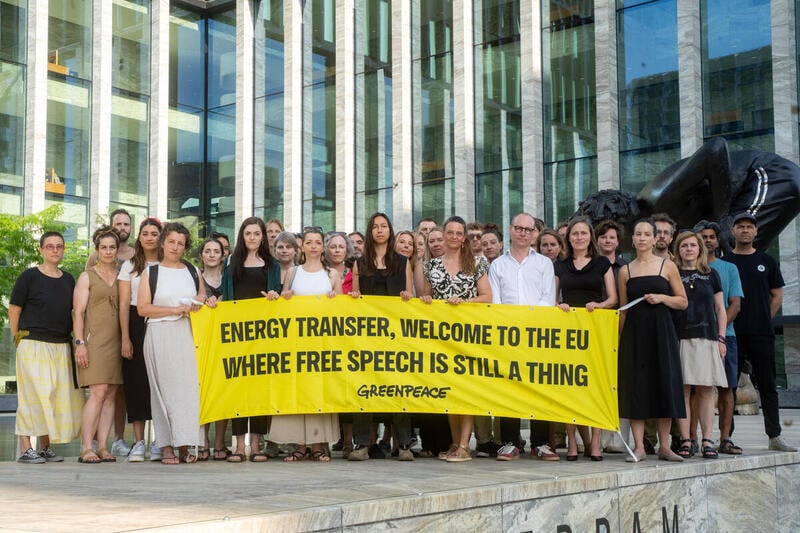After three days of barricading the OMV offices in New Plymouth through wind and driving rain, climate protesters have left the Austrian oil company a parting gift.
They’ve installed a carefully curated outdoor pop-up museum in OMV’s front car park, full of artefacts from the oil industry’s past.
“If we are going to survive this climate crisis, we need to consign oil companies to history. This is a symbolic start,” says Amanda Larsson, climate and energy campaigner for Greenpeace.
OMV is about to begin drilling for new oil and gas off Taranaki, and has plans to move into the untouched, deep seas of the Great South Basin off Dunedin afterwards.
The Austrian corporate – the last major overseas oil company prospecting here – is one of a hundred companies responsible for more than 70 per cent of world climate emissions.
“We are calling on OMV to stop right now and consign their outdated, climate-wrecking fuels to history,” Larsson says.
Protesters led by Greenpeace rolled out black carpet in the early hours of the morning, from the roadside to OMV’s front door.
Two smoking oil barrels flank the entry to the “Museum of Oil History” beside a 1970’s wrecked Mercedes sprayed pink, a four metre oil derrick, and a 1980’s petrol pump.
The pre-constructed art installation includes some provocative tongue in cheek exhibits such as the “pilot drill from the Deepwater Horizon oil disaster in the Gulf of Mexico”, a Petrel seabird which “narrowly escaped the Rena oil spill off Tauranga,” and the ancient fax machine “used to send the first exploration permit in New Zealand”.
“There is a dawning realisation in New Zealand and around the world that we cannot continue to burn fossil fuels like oil and gas. We have to make the switch to clean energy and we need to make that change right now if we are to avoid even worse climate impacts than what we’re already seeing around the world,” says Larsson.
“Oil companies like OMV have known about climate change for more than thirty years. They’ve had more than a generation to support their workers to shift to clean energy jobs. They have squandered that opportunity and now millions of people around the world are paying the price in the form of floods, droughts, fires and severe impacts on their food security and livelihoods.
“It’s very likely that future generations wandering through future museums will look back at the age of oil, and wonder at the corporate greed and short sightedness of a small few which brought us to the edge of extinction.
“We are encouraging OMV executives to help New Zealanders make oil history by surrendering their permits to drill in New Zealand waters. We can always find a place for it in our oil museum.”
Ends



